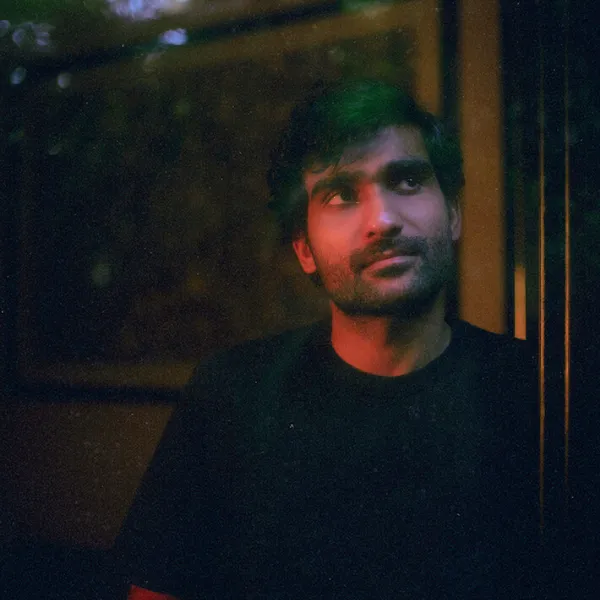Writing and making music is always first love, singing just came along, says Prateek Kuhad
YSWeekender speaks with Prateek Kuhad on being part of Obama’s playlist, his love for song-writing and working during the pandemic.
Singer-songwriter Prateek Kuhad catapulted to fame when his single, Cold/Mess, made it to former US President Barack Obama’s 2019 music list.

Prateek Kuhad
He also has many firsts to his credit – the first Indian artist to sign with Cut Craft Music, the first to open for Mike Posner, most streamed artist on Spotify when the platform launched in India, Best India Act at MTV Europe Music Awards, when his song Kasoor was streamed eight million times in 24 hours of release, and more.
In October 2020, Prateek announced his signing with Elektra Records, making history as the first solo Indian act to join the storied label.
Growing up in Jaipur, India, Prateek’s childhood listening consisted primarily of Indian pop and Bollywood soundtracks that filled the local radio dial, as well as his parents’ CD collection, which contained only limited Western music.
A move to New York City for college opened Prateek’s eyes to a new world of music, discovering Elliott Smith, which inspired him to seriously pursue his musical ambitions.
In an interview with YSWeekender, he talks about being part of Barack Obama’s preferred playlist, Bollywood music, and more. Edited excerpts:
YSWeekender (YSW): ‘I don't like singing. It's not my first love’. You said this in a recent interview. But your tryst with music started when you were a teenager. You have been loved, feted, and celebrated for your music... Yet, why do you feel so?
Prateek Kuhad (PK): When I say I don't like singing, which I do, it does not mean I don't like music - I love to write songs more. The reason I started doing music and doing it professionally is because I love the process of writing a song and making an album, and music is and has always been my first love. Singing came along as I had to sing my own songs live and that is why I like it.
YSW: Recently, you were signed by Elektra Records, making history as the first solo Indian act to join the label. How do you feel and what will it mean for your career?
PK: I guess we will find out more in time. It is good to have a label and in a lot of ways it supports my music. A team that helps you enhance your music not just financially but the key messaging of my music is led as a team together. Fingers crossed, my career goes well in time we shall see!
YSW: You've had a busy year... your Hindi EP Shehron Ke Raaz was released in June. Can you tell us about how you conceptualised it?
PK: I have been writing songs intermittently for the past few years. Although for the EP I did not plan it through because that is not how I usually do it. I usually write songs and then pick them for the EP or the album and that is exactly what I did for Shehron Ke Raaz.
YSW: Do you think being part of Barack Obama's playlist catapulted you to greater recognition and fame?
PK: It definitely created a lot of news because I believe it was a first for an Indian artist. In India, it created a lot of news but even before that happened, I was already performing at shows in Delhi and Mumbai for upwards of 6,000 people. I think Kasoor actually pushed my career a lot more as a single when it came out post to the Obama playlist because I feel that it created a lot more of news. Having said that yes, the Barrack Obama's playlist definitely was a great achievement but in a different way, and I am obliged.
YSW: You had a hit in Bollywood with Saansein.... do you think Bollywood music has evolved enough to experiment with different genres?
PK: People always talk about Bollywood as an entity that works together, but it actually does not. Yes, a whole industry is involved depending on which movie is happening and which team of people are working together as there are distinct cultures within Bollywood. So I think it really depends on a small number of people in Bollywood who are trying to experiment and do newer things, but the larger majority of people involved in Bollywood are not really doing anything experimental from what I see at least.
YSW: How have you been working during the pandemic with the industry slowing down? Has it been tough emotionally?
PK: Workwise it has been going well. I did need a break from most of the things around me and it has been fine. I have been taking it slow and easy through most of the pandemic. I started working on my next album months ago. I was in the US for most of that time working on my music. But emotionally, I think it just got a little claustrophobic towards the end and just being stuck indoors was annoying but it definitely could not have been worse.
YSW: Do you have any particular inspiration when it comes to composing, writing, and singing?
PK: I do not have any particular inspiration. I write intuitively and I just let thoughts and feelings go with the flow. I do not follow a particular process or look for inspiration, but I let life inspire me in whatever way it chooses to.
YSW: Where do you think true art comes from - a confluence of emotions, tradition, relationships, the power of change? What has your music been influenced by?
PK: I do not know where true art comes from - to be honest - I just live life and let it kind of soak in and let things happen to me and based on that I make my music through my experiences. Again, I am not looking around for experiences to write a song about, but I live life and focus on being that way to the best of my ability and circumstances.
YSW: What next?
PK: I just finished recording a full-length English album which, hopefully, should be out next year.
Edited by Megha Reddy








